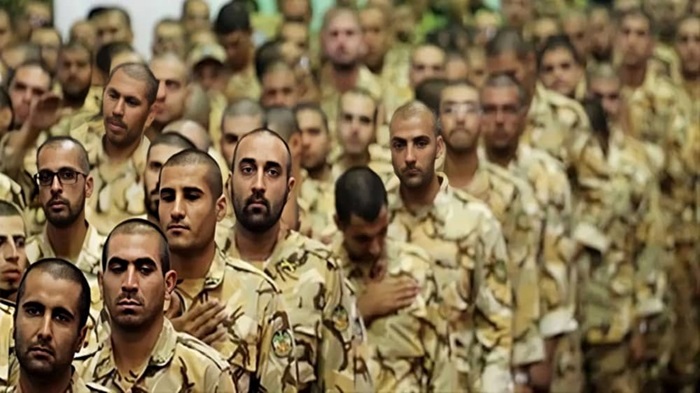
Recent reports from Iranian state media have shed light on discussions within the Iranian government about a significant change to the country’s military service policy.
On January 29, the Mehr News Agency reported comments from Mohsen Dehnavi, a member of the parliament’s presidium, regarding an agreement between the General Staff of the Armed Forces and the parliament speaker. This agreement, linked to the Seventh Development Plan bill, proposes to reduce the average military service period, including training, to 14 months.
This development is particularly noteworthy against the backdrop of Iran’s political landscape, where the military and law enforcement forces play a crucial role in the regime’s stability. The timing of these discussions, aligning with the lead-up to the parliamentary and Council of Experts elections—often criticized as undemocratic—raises questions about the motives behind this policy shift.
In Iran, compulsory military service is a rite of passage for all men over the age of 18, with the current obligation lasting between 18 months to two years. Avoidance of service can lead to severe consequences, including imprisonment, fines, and societal ostracization. Critics argue that the system disproportionately affects those without the means to circumvent it, either through legal exemptions or by paying for a service waiver, thus highlighting socio-economic disparities within Iranian society.
#Khamenei Set to Suffer Significant Defeat in Upcoming Sham Elections in #Iranhttps://t.co/ejEJqcSqcW
— NCRI-FAC (@iran_policy) January 11, 2024
The issue of military service reduction first gained prominence on October 7, 2023, when MP Mohsen Dehnavi, a prominent figure with ties to the Islamic Revolutionary Guard Corps, broached the subject. Despite facing resistance from various factions within Iran’s political spectrum, the proposal has gained traction, seen by some as a strategic move by allies of Supreme Leader Ali Khamenei to curry favor with the electorate.
The General Staff of the Armed Forces and the Organization of Conscription initially opposed the amendment to the military service law. However, following Dehnavi’s announcement of an agreement with high-level officials, the Conscription Organization, in a statement issued on November 6, 2023, designated the Public Duty Organization of the Law Enforcement Force as the definitive source of information on this matter, implicitly criticizing Dehnavi’s announcements.
The Guardian Council, a key player in Iran’s legislative process, initially opposed the bill, sending it back to parliament for revision. Despite this setback, Dehnavi has remained a vocal advocate for the reduction of military service, leveraging his political connections and media access to promote the proposal, which is now part of the Seventh Development Plan.
Watch and judge why #Khamenei’s representative in Mashhad can't help but begging the regime’s insiders to vote in the upcoming sham #elections pic.twitter.com/CbGSsqgQrI
— NCRI-FAC (@iran_policy) December 31, 2023
This unfolding debate over military service in Iran reflects broader themes of political strategy, manipulation, and the complexities of reform within the Islamic Republic. It also underscores the significant role that military obligations play in the lives of Iranian citizens and the potential for policy changes to influence the broader socio-political landscape. As the proposal progresses, it serves as a testament to the intricate power dynamics at play within Iran’s ruling elite and the ongoing struggle to navigate the country’s future direction.

MEK Iran (follow us on Twitter and Facebook), Maryam Rajavi’s on her site, Twitter & Facebook, NCRI (Twitter & Facebook), and People’s Mojahedin Organization of Iran – MEK IRAN – YouTu
